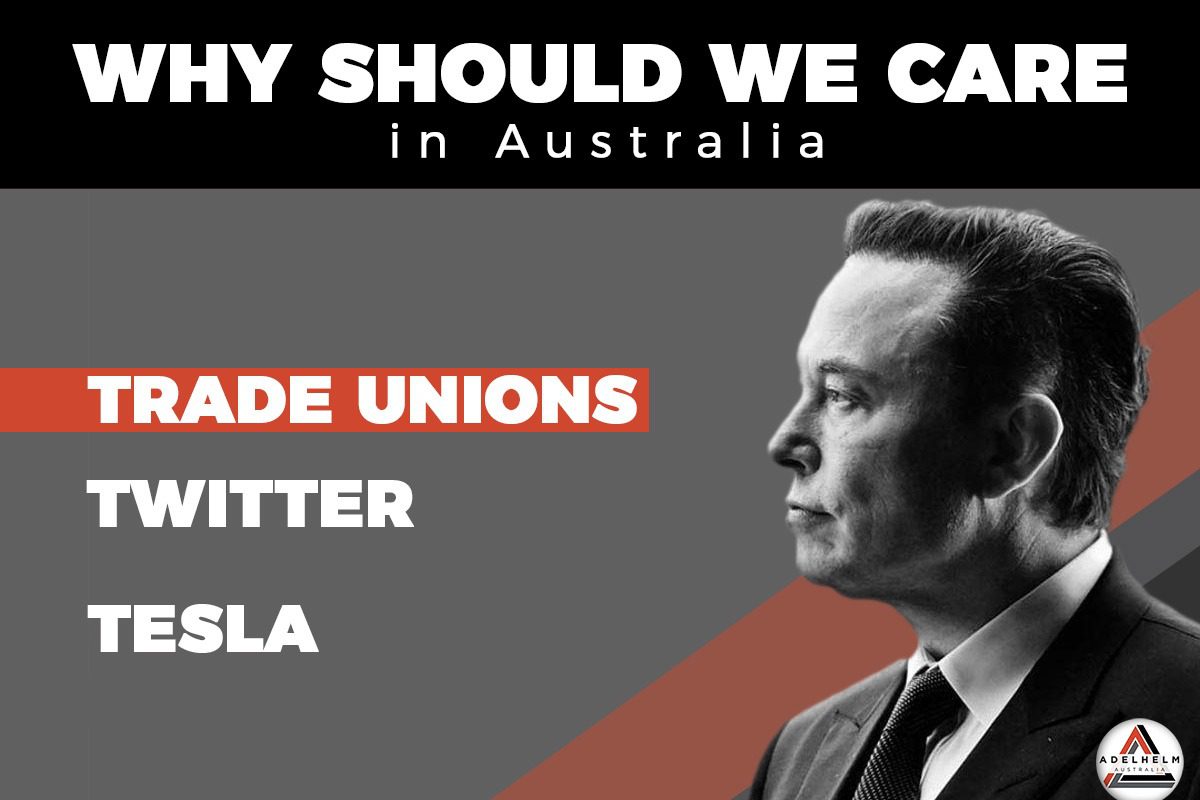
Date
The international differences in IR keep us on our toes! It is always interesting to observe what’s happening in the US, especially when presidents, rock stars and Elon Musk are involved! This year Adelhelm has worked with teams in Australia, New Zealand, Malaysia, Thailand, China, South Korea, South Africa, Kenya, and India. Regardless of the region, there are some basic IR approaches which are useful anywhere. Check out this article for some key insights to managing unions!
Twitter, Tesla and Trade unions: What do Elon Musk’s twitter-wars mean for us?
In his recent Twitter-takeover, Elon Musk’s staff cuts and not-so-subtle goading of Alexandria Ocasio-Cortez’s sweatshirt prices, has again placed him in the spotlight for being “anti-union”. It is not the first time Musk has come under fire for being a vocal union opponent.
Back in 2018 he took to twitter to threaten removing Tesla stock options if his employees unionised. Earlier this year he was accused of tweets which also allegedly “goaded” his Tesla employees to unionise. This was in response to tweets from KISS legend Gene Simmons, who criticised President Biden for not touting Tesla alongside Ford and GM for game changing work in electrical vehicles – Simmons surmised the President’s omission was because Tesla was non-union.
But why should we care about this in Australia? Whilst US labour laws and workplace culture around unions differ significantly to Australia, and whether you are a Musk supporter or not, these star-studded twitter wars pose a very relevant question: How should employers manage unions?
There are a myriad of philosophical, ideological, ethical angles to answering this question, but why don’t we just keep it simple and pragmatic?
There are three fundamental questions employers should ask sequentially to successfully manage unions:
What can we do?
Employers have rights, employees have rights, and unions have rights. So the first thing an employer should know is what these rights are. Employers need to know the parameters all parties should stick to. This goes for day-to-day decisions involving employees (unionised or non-unionised) to large industrial disputes. By crossing legal boundaries, or by being too naive, employers can find themselves in a world of unnecessary industrial, financial and reputational risk.
What should we do?
This second question relates to the prerogative of employers to run an operationally efficient, productive and financially viable business. Employers should be very clear about what is needed to achieve this, and then be willing and able to clearly explain and articulate this to unions in a transparent and easily understandable manner. Generally speaking, where there are open lines of communication between employers and unions, there tends to be more acceptance and understanding when difficult business decisions need to be made.
What can we get away with?
Whilst this third question deliberately pays into the type-cast anti-union employer narrative, it actually uncovers a very powerful truth: Just because something is legal (question 1), and makes operational sense (question 2), it doesn’t mean it is in the best interests of healthy workplace relations and overall productivity long term. Asking “what can we get away with” forces employers to consider the broader and long-term consequences of decisions that may activate a union response. Generally speaking, productive and sustainable workplaces with low IR risk profiles recognise the importance of maintaining healthy, mutually respectful workplace relations with employees and unions.
Whilst most employers don’t enjoy the blessing (or curse?) of tweets involving rock stars, presidents or the world’s most famous entrepreneur, they do need a pragmatic way of navigating the day-to-day challenges of industrial and workplace relations. These three questions will assist any employer to come to an informed, context-specific view as to the best way to manage unions.
More
articles